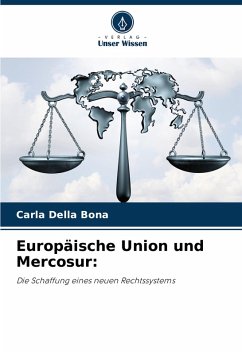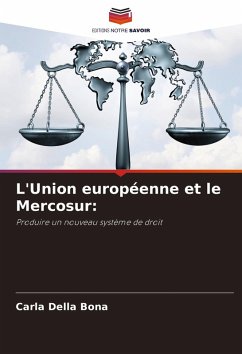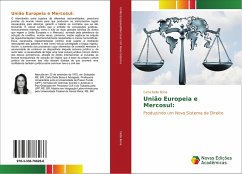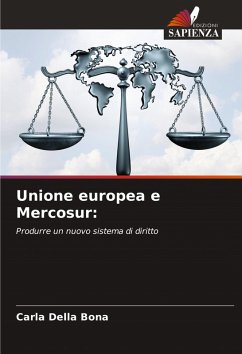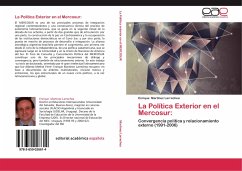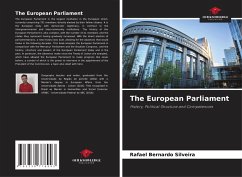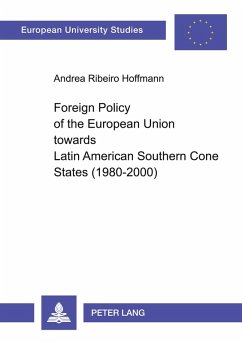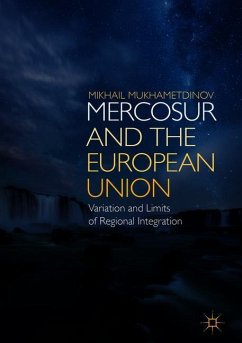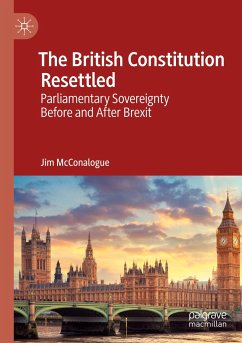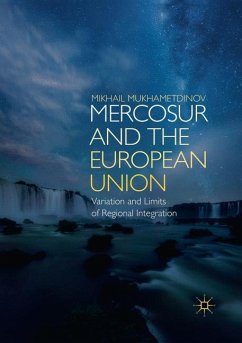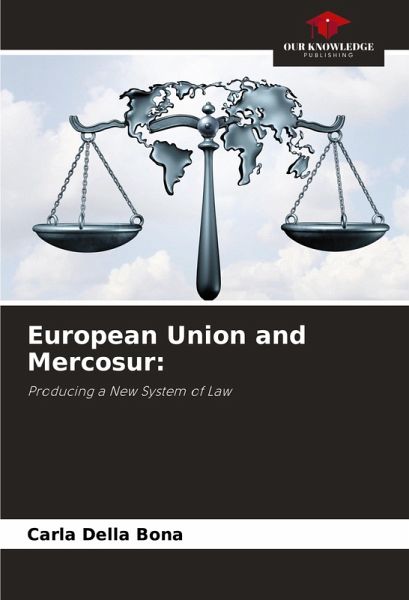
European Union and Mercosur:
Producing a New System of Law
Versandkostenfrei!
Versandfertig in 6-10 Tagen
25,99 €
inkl. MwSt.

PAYBACK Punkte
13 °P sammeln!
Exchanges between people of different nationalities put pressure on jurists around the world to produce the legal instruments needed to underpin, guarantee and standardise the contracts that are being formed. It is in this sense that the clash of historically diverse legal conceptions, such as the two great families of law that govern the European Union and Mercosur, fuelled by the urgency of resolving conflicts that are often pioneering, imposes urgency on the creation of internationally respected and less bureaucratic regulations. This necessary legal regulation is subject to the inescapable...
Exchanges between people of different nationalities put pressure on jurists around the world to produce the legal instruments needed to underpin, guarantee and standardise the contracts that are being formed. It is in this sense that the clash of historically diverse legal conceptions, such as the two great families of law that govern the European Union and Mercosur, fuelled by the urgency of resolving conflicts that are often pioneering, imposes urgency on the creation of internationally respected and less bureaucratic regulations. This necessary legal regulation is subject to the inescapable mediation of words and will have the English language as its favoured vehicle. Thus, the increase in the number of cases whose connecting elements refer to the need to know the provisions of that legal system and, on the other hand, the need to forge a new common legal culture within the economic blocs, through international law, including the extrajudicial forms of dispute resolution that are the basis of the common law legal culture itself, leave no doubt that there will be a legal confluence between common law and civil law.





